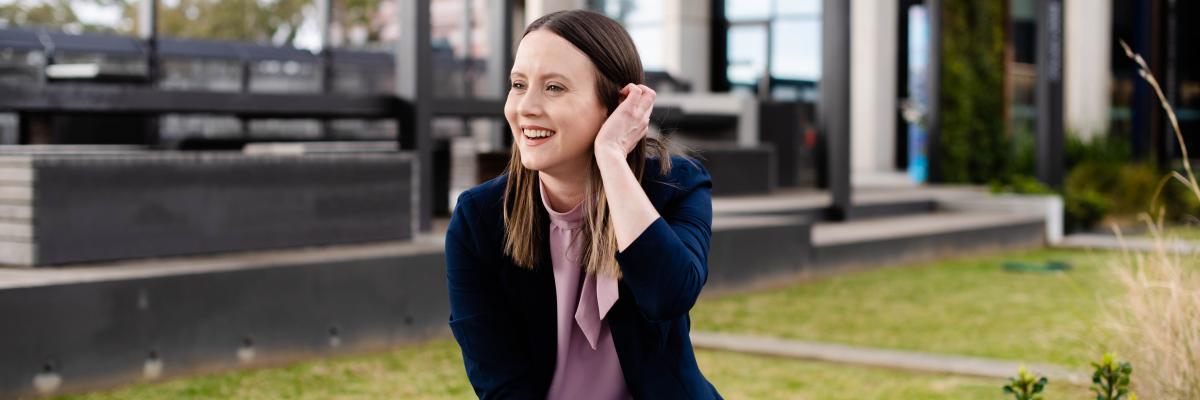Connected Conversations | Emma Solly
With an initial interest in chemical engineering, Emma Solly eventually found her passion in medical research. Now a PhD candidate with the University and SAHMRI, Emma is excited to publish her first lead author research paper this year.

Please tell us a little bit about yourself.
My name is Emma and I’m a PhD Candidate at the University of Adelaide and SAHMRI, studying the role of microRNAs in diabetic vascular complications. I was lucky enough to receive a highly competitive PhD Scholarship from The Hospital Research Foundation for three years during my PhD candidature. My research is trying to identify new targets that are involved with poor blood vessel formation in diabetes. We hope to try to use these as therapeutic targets to help patients with diabetes to heal and recover from injury, stroke or heart attack.
Where did you do your undergraduate studies?
Initially I started out studying a Bachelor of Chemical and Petroleum Engineering and soon discovered that this area was not for me. After much trial and error, I eventually discovered my love for molecular biology and medical research. I completed my undergraduate studies at Flinders University, where I graduated with a Bachelor of Medical Science and Bachelor of Science (Honours). I majored in Biochemistry and Molecular Biology as well as Microbiology and received the Flinders University Medal for my academic achievement. My Honours research project investigated mechanisms that may be important for promoting prostate cancer cell metastasis. This was my first introduction to medical research, and I loved it!
What do you love most about studying now at Adelaide?
What I really love about studying at the University of Adelaide are the opportunities to get involved with all different kinds of events. These range from conferences to seminars, workshops and committees, as well as competitions like the Three Minute Thesis. I really love science communication and these types of opportunities have helped me develop the skills needed to communicate science more effectively.
What would you say to your 18-year-old self, commencing their time at university?
It’s okay to fail at things sometimes-the journey to success can be paved with many failures. To get to the end you need to persevere and keep trying, because those that have succeeded are the ones who didn’t give up.
What are you working on now?
One of my favourite aspects of working in medical research is being able to contribute to our understanding of health and disease and how our bodies work. There are so many things that we still don’t know and so many secrets to uncover! It’s like a huge puzzle that everyone gets to solve a little piece of. The exciting part about this is that there’s a point when you get a new result or see something cool happen in your own experiments and, at that point in time, you are probably the only person in the world that knows that one thing–the only person that knows that piece of the puzzle exists. This can be a great moment and then the next great moment is getting to tell everyone else!
What do you do in your spare time?
When I’m not in the lab, I like to spend time with my nephews and take them to the zoo or the museum. In a pre-COVID world, I loved going to the theatre and ballet and one of my favourite experiences was seeing The Nutcracker at the Sydney Opera House. A close second was getting to meet David Copperfield on stage in Las Vegas and being able to (poorly) participate in one of his magic tricks.
As a fun aspect of my PhD, in my spare time, I also try to maintain my Instagram page @my.science.journey, where I share some of the things I do in the lab and some of the fun aspects of science!
What are your hopes for 2021?
I hope that 2021 will be a better year for everyone. For me personally, I hope I can publish my first lead author research paper with data from my PhD, and that I get to present my research, in person, at an international conference!
Name three things you won’t forget about the past year…
- The way that people have come together to support each other through difficult times.
- The fact that, even in a pandemic, no-one wanted to hoard Risoni (Orzo) pasta.
-
Finally, that accurate, honest and informative science communication is so important for public understanding and successful implementation of science into real world practices.
